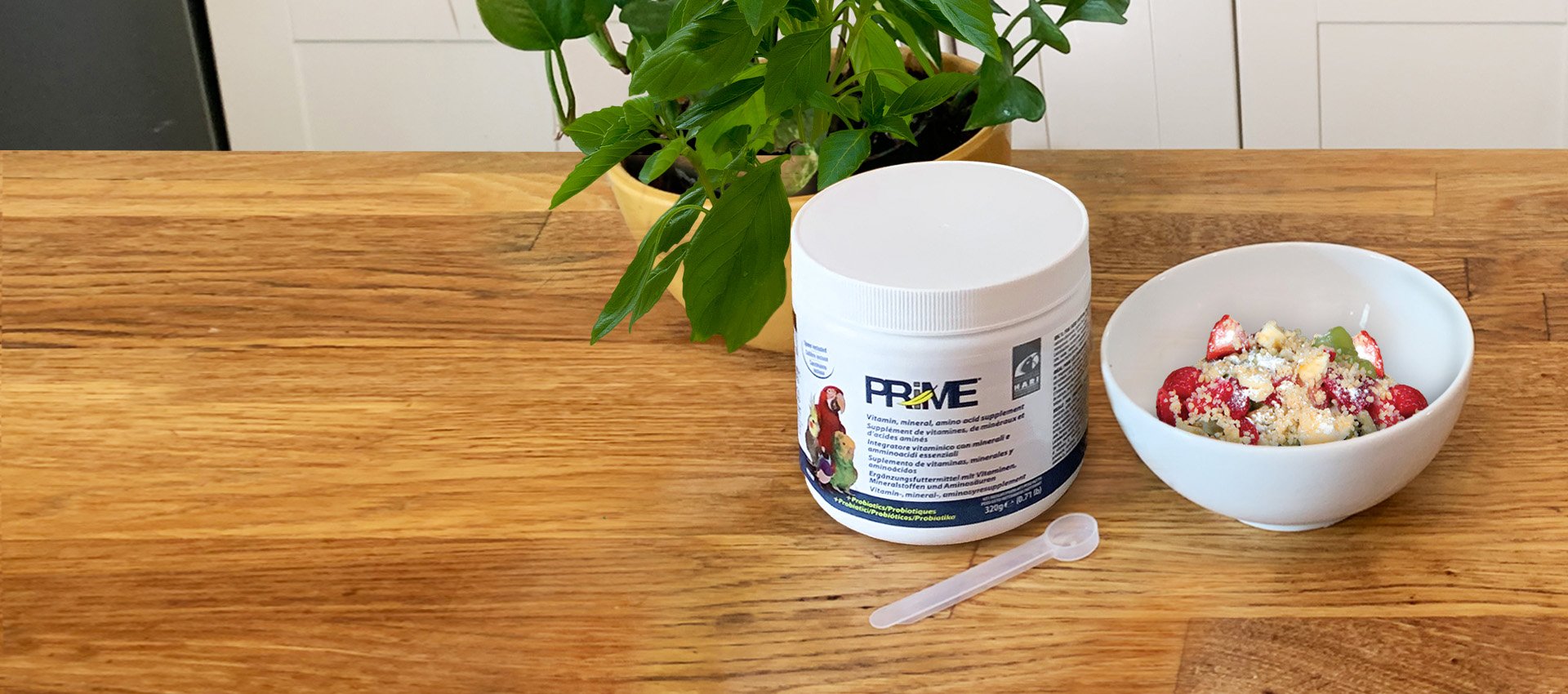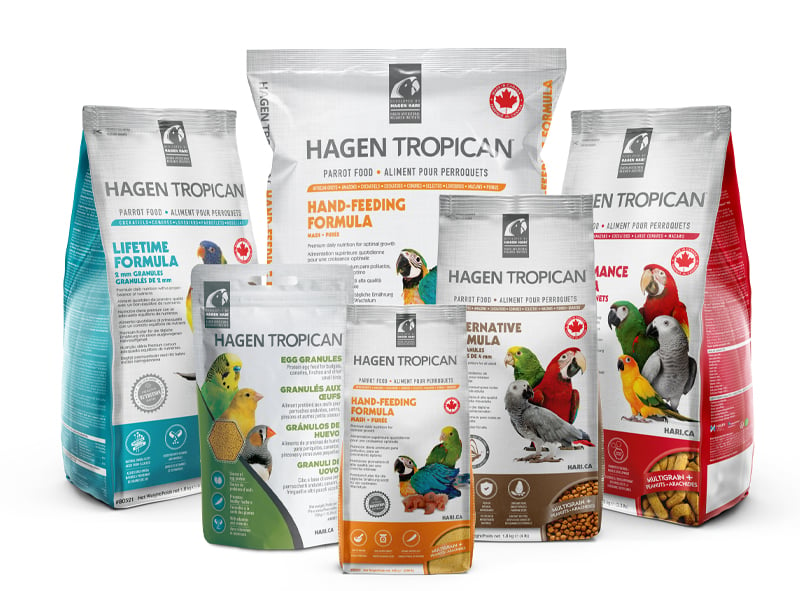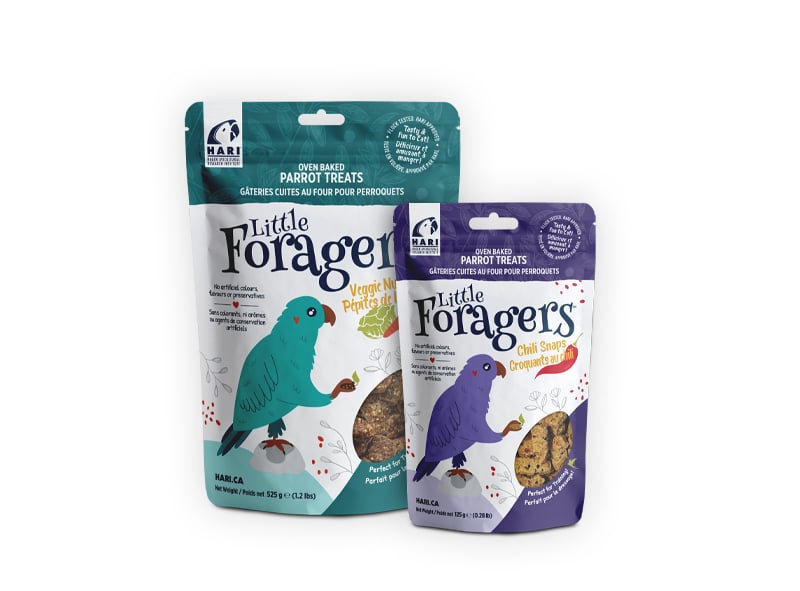Your cart is currently empty!
HARI Official Brand Site
Healthy Diet Recommendations
For Most Companion ParrotsFor Most Passerines & Small Species
For Most Companion Parrots
For most companion parrots, a proper daily diet should consist of 70%† Tropican extruded formula and 30% enrichment foods such as fresh veggies and fruits, sprouts*, and leafy greens. Treats should never be more than 3-5% of their daily food intake. To encourage interaction and stimulation, supplements & foraging toys should also be provided. Tropican extruded morsels ensure that fussy eaters get a full balanced diet – no selective eating. Since Tropican formulas already incorporate the proper levels of vitamins and minerals, a vitamin supplement is not needed when fed at the recommended percentages.

Note: †70% of the diet is equal to 5% of birds’ wt. (g). Ex: 200 g bird = 10 g of Tropican per day. The percentages listed can vary depending on your birds’ lifestyle, life stage, species, weight and particular predispositions. This is only a recommendation. Always speak with your avian veterinarian for any health concerns. Breeder and Juvenile parrots might require a little more Tropican. *Take precautions when feeding sprouts as they may cause mold in the crop when mishandled.

For Most Passerines & Small Species
Lifetime Formula is the ideal parrot food for companion birds that are not moulting or facing any other stressors, such as cooler temperatures. With lower protein and calcium content, this food is designed to maintain a healthy lifestyle. The natural colours in the food come from vegetable sources such as carrots, tomatoes, and alfalfa, providing an attractive option for your bird without any artificial flavours.

Note: The percentages listed can vary depending on your birds’ lifestyle, life stage, species, weight and particular predispositions. This is only a recommendation. Always speak with your avian veterinarian for any health concerns.
Learn More About Nutrition
Toxic Foods For Pet Birds
As a responsible pet owner, it’s important to ensure that your feathered friend is getting a balanced diet that meets their nutritional needs. It’s equally important to be aware of the foods that can be toxic to your pet bird.
Keep your pet bird healthy by avoiding these toxic foods:
- Alcohol
- Apple seeds
- Avocado
- Caffeinated beverages
- Chocolate
- Fruit pits
- Junk or processed food
- Mushrooms
- Onions
- Raw dairy products
- Rhubarb leaves
- Salty nuts and snacks
In addition to the above, it’s also important to steer clear of foods that are high in salt, fat, and sugars, as well as those that contain colours or preservatives.


Reminder To Weigh Your Bird Weekly
Our avian companions depend on us for every aspect of their care and well-being. A responsible caretaker’s health management program should include weekly weight monitoring. Keeping records of your companion’s weight might highlight a health concern or suggest a diet reevaluation. Use this link to download and print the companion parrot weight chart.
Need some tips and strategies for a successful weighing routine? Read all about weighing your parrot.

Why do breeding birds need PRIME?
PRIME contains 14 vitamins with extra vitamin D and E for improved breeding. Birds raising young or laying eggs (especially excessive egg layers) will benefit from PRIME as it contains calcium gluconate and will boost diet calcium to the desired levels.




